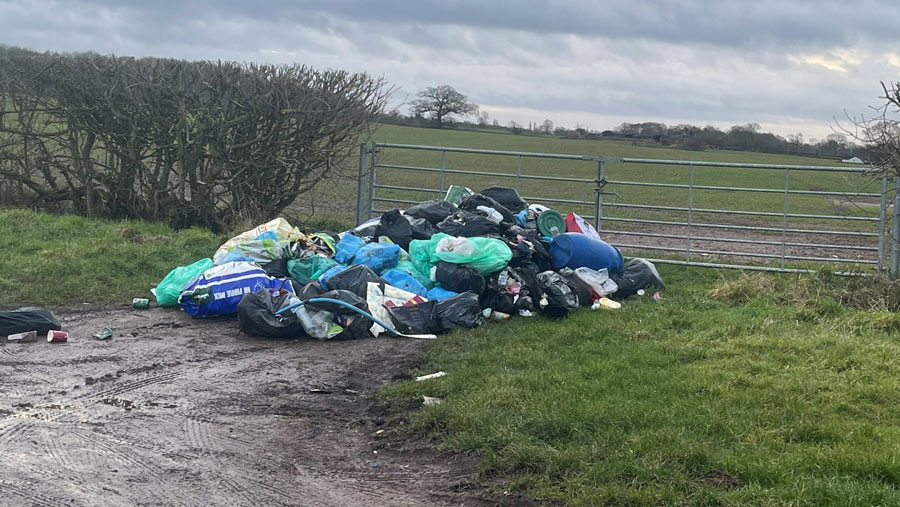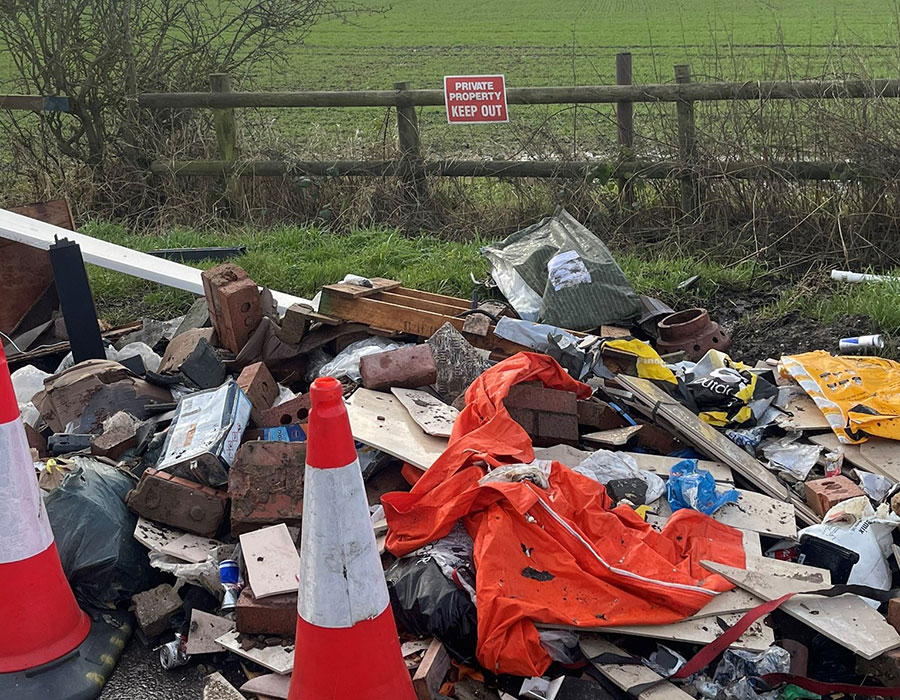Defra figures confirm fly-tipping surge during lockdown
 © William Oliver
© William Oliver Farm groups have demanded tougher action to stop waste being illegally dumped in the countryside, after new figures revealed a surge in fly-tipping incidents in England during the coronavirus pandemic, but a fall in the number of prosecutions.
Councils dealt with 1.13 million fly-tipping incidents from April 2020 to March 2021, an increase of 16% from the 980,000 reported in 2019/20.
See also: What to do if you’re a victim of… fly-tipping
The Defra figures confirm reports by many farmers that fly-tipping spiralled out of control during lockdown.
But the Country Land and Business Association (CLA) said the shocking numbers were the tip of the iceberg as the data excludes the majority of private-land incidents and large scale incidents dealt with by the Environment Agency (EA).
Farmers are often left to pay hefty bills for clearing waste from their own land.
Alarmingly, there was a significant drop in the number of penalties handed out for fly-tipping compared with 2019/20.
- Local authorities carried out 456,000 enforcement actions in 2020/21, a decrease of 4%, or 18,000 actions, from 474,000 the previous year
- The number of fixed penalty notices issued was 57,600 in 2020/21, a decrease of 24% from 75,400 in 2019/20
- The number of court fines issued decreased by 51% from 2,672 to 1,313 in 2020/21, with the value of total fines decreasing to £440,000 (a decrease of 62% on the £1.17m total value of fines in 2019/20)
The most common location for fly-tipping was on pavements and roads, which accounted for more than two fifths (43%) of total incidents in 2020/21.
The most common size category for fly-tipping incidents was equivalent to a “small van load” (34%), followed by the equivalent of a “car boot or less” (26%).
In 2020/21, 39,000, or 4%, of total incidents were of “tipper lorry load” size or larger, an increase of 16% from 33,000 in 2019/20.
‘Hugely disappointing’
Stuart Roberts, NFU deputy president, said the figures were hugely disappointing and urged the government, local authorities, police and the EA to work better together on sharing information to ensure more offenders are being prosecuted.
“Significant progress needs to be made to stop it from happening. Let’s start by properly punishing those offenders who are caught dumping waste illegally with punitive fines, so they act as a deterrent,” Mr Roberts said.
CLA president Mark Tufnell added: “Local authorities tend not to get involved with clearing incidences of fly-tipped waste from private land, leaving the landowner to clean up and foot what is often an extortionate bill.
“Fly-tipping continues to wreck the lives of many of us living and working in the countryside – and significant progress needs to be made to stop it.”
Resource and waste minister Jo Churchill said the government was strengthening powers to detect and prosecute waste criminals through the new Environment Act, consulting on introducing electronic waste tracking and reforming the licensing system.
Case study: ‘Report every incident’

© William Oliver
Arable and poultry farmer Will Oliver urged farmers to report each fly-tipping incident they come across.
“It is like hare coursing, if everyone reports it and suddenly there’s 12 cases a day then the police have a record. If no one reports fly-tipping then the incidents don’t become a statistic.”
Mr Oliver said he constantly sees fly-tipped waste on the roads leading to his farm near Nuneaton, on the Warwickshire/Leicestershire border.
“We have loads of it dumped in our gateways and fields too. Caravans full of tyres, building waste and the rubbish from cannabis farms,” the farmer said.
“The council are pretty good, they will come and pick stuff up but I do think maybe they need to be a bit more lenient at the tip to make it easier for people.”
